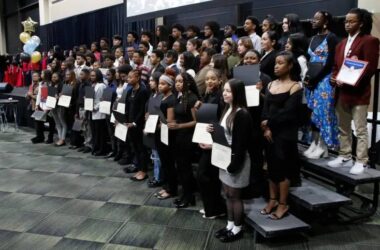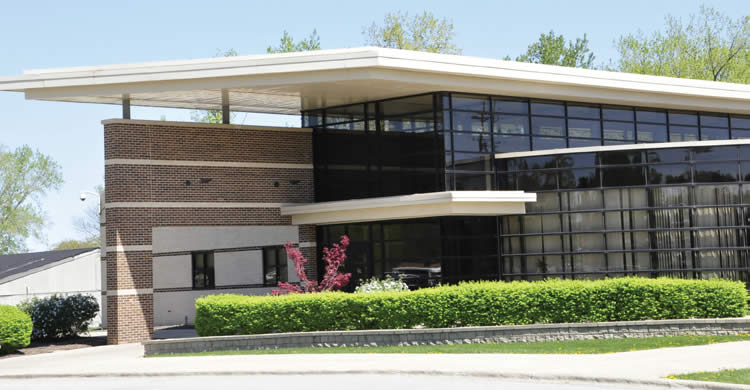
Diane Wood, chief judge of the Seventh Circuit Court of Appeals, was hosted by the Montesquieu Forum, a center dedicated to the exploration of political philosophy and the classical heritage that informed the American founding. Since 2008, the center has brought together several disciplines at Roosevelt—philosophy, history, political science and more—for lectures, conferences and reading groups. It also sponsors visiting professors, fellows and summer academies for high school teachers.
Wood, who has served on the appeals court since 1995, spoke on Sept. 24 in honor of Constitution Day. A scholar of the Magna Carta, which turned 800 this year, Wood talked about how the document “laid the cornerstone for modern due process and rule of law.”
The Magna Carta, or the “Great Charter,” was originally issued in 1215 by King John of England as a peace treaty between himself and rebel barons. King John didn’t intend the document to last, but rather fill a temporary political need. Today, just a few of its 63 clauses survive in English law. However, its key principles, such as the right to justice under the law and the idea that even a ruler isn’t above the law, persisted and spread. The document is seen by many as an enduring symbol of the need for vigilance against abuse of power.
Its ideas were brought to the United States by English writers and lawyers and provided the basic foundation of the Bill of Rights, Wood said. The Fifth Amendment, ratified in 1791, is particularly important, as it declares that no person shall be deprived by the federal government of life, liberty or property without due process of law. In 1868, this provision was applied to the states through the Fourteenth Amendment.
“Our country was founded so much on ideas. It wasn’t founded on ethnicities…it was founded on concepts,” Wood said. “The concept of not being deprived of your rights other than by the law of the land was a very powerful one to American settlers.”
As the Magna Carta influenced American law, it has also affected international law. Its principles can be found in the Universal Declaration of Human Rights and the European Convention on Human Rights.
The former is especially relevant to the Roosevelt legacy. The Universal Declaration of Human Rights, adopted by the United Nations General Assembly in 1948, was drafted by a commission led by Eleanor Roosevelt, one of the University’s earliest and biggest supporters. The University is named in honor of her and her husband, FDR, in recognition of their commitment to justice.
Wood also explored some ways our modern democracy may be at odds with the principles of the Magna Carta. If no one is above the law, she asked, how should we think about the legal doctrine of sovereign immunity, in which the U.S. government cannot be sued? How do we ensure the government is not exceeding its constitutional powers, Wood asked, particularly when it comes to secret operations or surveillance?
“Is there some obligation if we are to live under the rule of law to come up with better safeguards than what we have?” she said, mentioning the ideas of third-party monitoring or special advocates to ensure government accountability.
The Magna Carta should serve as inspiration to stay vigilant in the defense of individual rights, she said, and against an overly powerful government.
“In situations of difficulty,” she said, “Magna Carta gives us the courage to go on. It shows us the way.”
This spring, the Montesquieu Forum will host a conference on the subject of commercial republics in the 18th century and a lecture on Frederick Douglass. Visit the center website for more details as they become available.
Source: www.roosevelt.edu








